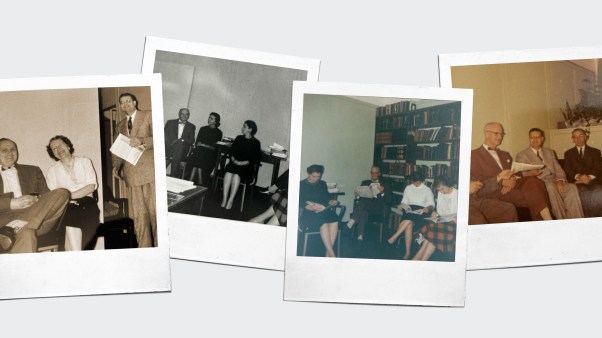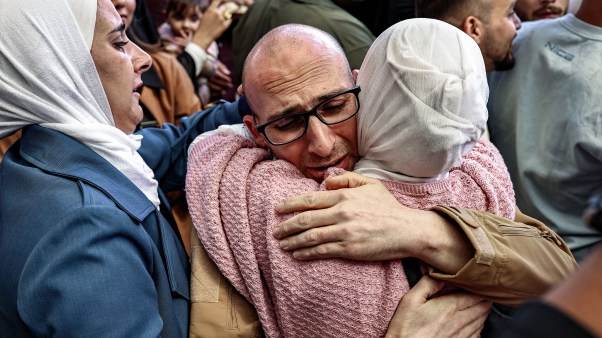Jennie has just left the cult she has been in for two years. She is tired and demoralized. She wants to lead a normal life again, but after years of having someone else make her decisions for her, she doesn’t know how to look for a job or find an apartment. Her parents don’t know what to do with her. Ordinarily there would be little help for someone like Jennie.
Now a south Florida hospital is trying to turn the tables on a nationwide state of affairs that produces hundreds of spiritually wounded ex-cult members like Jennie. Fort Lauderdale’s Florida Medical Center has opened a psychiatric unit to help these ex-cultists reenter the mainstream at a slow pace.
For $300 to $320 per day, ex-cultists can be admitted to a unit specially designed to handle their emotional needs. Their commitment must be voluntary. The hospital will not accept anyone who is unwilling or who has been kidnaped or deprogrammed.
Patients are assigned to a team of psychiatrists, nurses, mental health counselors, social workers, and recreational therapists. After they are set in a pattern of regular meals and sleep, they are assigned to group and individual therapy sessions. They learn how to solve problems, how to be assertive, how to make their own decisions, and how to find a job.
Hospital officials opened the unit after being approached by the Concerned Parents of Cult Children (CPCC), a south Florida group that vehemently opposes cults. Once their children had left a cult, the adjustment period was so difficult that CPCC members began searching for a clinic specializing in cult problems. They wanted more expertise than a rabbi or minister is trained to provide.
The treatment is psychiatric only. The hospital does not try to fill the religious void left in the patient’s life. “We do not channel anyone to a religious belief,” says Jayne Coraggio, the hospital’s project director of psychiatry. “It is not a religious-based program at all. But we do show a person how to use critical thinking to choose their beliefs.”
Isa Samad, one of the six psychiatrists working with the program, says it’s up to the family to give their children religious guidance.
“The parents feel that if their children meet with a psychiatric person, they’ll be given a greater chance to think for themselves,” he said. “I won’t go into anything theological. That would be an intrusion into their private lives.”
As it stands now, the patients are directed toward what they believed before they entered a cult. The patient’s family takes a role in the therapy by sitting in on family counseling sessions.
Samad identifies some of the cults the program is aimed at: The Way International, the Unification Church, the Divine Light Mission, and the Hare Krishna movement. Other hospital officials are edgy about naming the cults, saying they are more interested in treating the effects of the cults than pinpointing specific groups. “Cults are any group that has taken a person away from the community and has destructively worked with him … and gotten him involved in their own interests,” says Kondoor Abraham, a mental health counselor who helped create the unit.
When told that one person’s cult may be another person’s religion, such as Jews for Jesus and similar groups commonly misidentified as cults, Abraham replies, “You be the judge: Is that cult helping that person to grow to their maximum potential?”
The psychiatrists working with the unit have a mixed bag of religious beliefs. Abraham is an evangelical Christian with a degree from the South India Biblical Seminary. He says the program deals with emotional and not spiritual needs. Still, he adds, replacing the cult with the patient’s family is a step in the right direction.
So far the clinic, which opened this spring, has treated only a handful of patients. These people “have a lot to fear from the beginning,” Abraham says. “They want to stay, they want to leave, and they don’t want to trust the treatment program.” These patients, he explains, are undergoing a mourning period for the cult they left.
Abraham and his colleagues are setting their hopes on the premise that once the patients have been there one month—the minimum stay is four weeks—they will have tasted enough freedom that they’ll never want to return to the cult they left.
JULIA DUINin Florida
Moral Majority Spokesman Gets A Syndicated Column
Cal Thomas, communications vice-president for Moral Majority, had a bone to pick with America’s media elite. He wrote a book about “the censorship of the Left,” called Book Burning, which depicts how conservative and religious points of view are omitted from the marketplace of popular ideas.
Then something remarkable happened: the New York Times published a column by Thomas based on his book, and the Washington Post bought an opinion piece. The Los Angeles Times ran a Thomas column calling Republicans back to the compassion that marked their origins.
This spring the Los Angeles Times Syndicate signed Thomas to write two syndicated columns per week. Capitalizing on his hard-headed conservatism and sharp wit, the syndicate hopes to sell his column to newspapers around the country.
Thomas says his columns will not promote Christianity, but will explore topics the news media tend to ignore. “I’m trying to write with the mind of Christ, since he’s the ultimate source of truth.”
Thomas is a 21-year veteran of Washington, D.C., broadcast journalism, as an NBC White House and general assignment reporter, and a broadcaster with Forest Boyd at International Media Service, a daily new service for Christian radio stations.
Thomas rarely runs out of words, but that almost happened when he was interviewed by representatives of the L.A. Times Syndicate. “They told me every reason why they couldn’t take me on,” he says, “then one of them asked me to tell about being a Christian. I thought, ‘Oh boy, if I come on too strong, they won’t carry the column.’ ”
But Thomas remembered praying that morning about his opportunity. “So I spent ten minutes telling how Jesus Christ had affected every aspect of my life. My god was journalism, and I tried to become a star. Out of that came a commitment of my life to Christ.” After his testimony, the Times officials recalled that one of their conservative columnists was leaving the syndicate. They asked Thomas on the spot to begin submitting columns twice a week.
Thomas hopes to get a message across to newspaper readers at large, and he wants to set an example for Christians as well. “Let’s do the opposite of a boycott,” he says. “If we really want to influence the world, we have to get out of our religious establishment and into the marketplace. We’ve been locked in the protest mode too long.”










